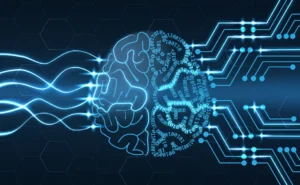Artificial Intelligence
Artificial intelligence, commonly referred to as AI, is the simulation of human intelligence processes by machines. These processes include learning, reasoning, and self-correction. In simple terms, AI allows machines to mimic human-like cognitive functions such as problem-solving, decision-making, and natural language processing.
Types of Artificial Intelligence
There are three main types of artificial intelligence:
- Narrow AI:
Also known as Weak AI, this type of AI is designed to perform a narrow task, such as facial recognition or playing chess. Narrow AI is specialized and focused on a specific task or domain.
- General AI:
Commonly referred to as Strong AI, General AI is the concept of a machine with the ability to apply intelligence to any problem, rather than a specific one. General AI can understand, learn, and apply knowledge across a range of tasks.
- Superintelligent AI:
This type of AI surpasses human intelligence in every aspect and can outperform humans in virtually all tasks. Superintelligent AI is still in the realm of science fiction and remains a subject of debate among experts.
What is Artificial Intelligence in Simple Words?
In simple words, Artificial Intelligence refers to the creation of computer systems that can think, learn, and make decisions like humans. These systems use algorithms and data to process information, recognize patterns, and generate insights. From self-driving cars to recommendation systems, AI technologies are transforming various aspects of our daily lives, enhancing convenience, efficiency, and safety.
Best Definition of Artificial Intelligence
The best definition of artificial intelligence is the ability of a machine to perform tasks that typically require human intelligence. This includes tasks such as understanding natural language, recognizing images, making predictions based on data, and autonomous decision-making.

Examples of Artificial Intelligence
- Virtual Assistants:
Virtual assistants like Siri, Alexa, and Google Assistant use artificial intelligence to understand and respond to voice commands. They can perform tasks such as setting reminders, providing weather updates, and answering questions.
- Recommendation Systems:
Online platforms like Netflix, Amazon, and Spotify use AI algorithms to recommend personalized content to users based on their preferences and behavior. These recommendation systems help improve user experience and engagement.
- Autonomous Vehicles:
Self-driving cars use artificial intelligence to navigate roads, detect obstacles, and make decisions in real-time. AI technology enables these vehicles to analyze traffic patterns, anticipate movements of other vehicles, and ensure passenger safety.
- Medical Diagnosis:
AI-powered systems are being used in healthcare to assist doctors in diagnosing diseases, predicting patient outcomes, and recommending treatment plans. These systems analyze medical data, images, and patient records to make accurate and timely diagnoses.

